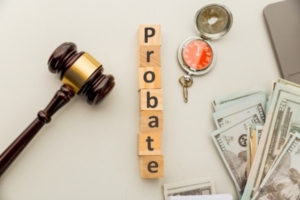
While many types of assets can be kept out of probate with careful planning, there are also certain types of assets that are not subject to probate in Florida. By identifying your probate and non-probate assets, you can prepare yourself for the next step of determining what documents you should use to build your estate plan.
What Types of Assets Are Not Subject to Probate in Florida?
First, we will talk about the types of assets that are not subject to probate. These are assets for which ownership will transfer automatically at the time of your death. Assets that are not required to be probated in Florida include:
- Real estate held in joint tenancy or as tenants by the entirety – If you co-own real estate with someone else, the property will transfer outside of probate provided that ownership is structured appropriately. In Florida, this means ensuring that the deed either identifies you and your co-owner as “joint tenants” or “tenants by the entirety.” Any co-owners can designate themselves as joint tenants, while tenancy by the entirety is only an option for married couples.
- Joint bank accounts and bank accounts designated as payable on death (POD) – Joint bank accounts will transfer into the sole name of the surviving owner at the time of death. Assets held in bank accounts designated as payable on death (POD) will transfer to the designated beneficiary at the time of the original owner’s passing.
- Brokerage accounts with a named beneficiary – If you own a brokerage account, you most likely designated a beneficiary when you set up the account. The account will transfer to your designated beneficiary upon your death outside of probate, and you can change your beneficiary at any time by submitting the requisite form to your brokerage firm.
- Retirement accounts with a named beneficiary – Similar to brokerage accounts, retirement accounts have named beneficiaries who are entitled to take ownership at death without going through the probate process. Also similar to brokerage accounts, you can revise your designated beneficiaries at any time.
- Life insurance policies – Proceeds from life insurance policies are paid directly to the policy’s beneficiaries outside of probate. This is true whether you own the policy personally and have designated one or more individual beneficiaries, or you have established an irrevocable life insurance trust (ILIT).
Importantly, while these assets transfer automatically outside of probate, your loved ones will still need to take certain steps in order to finalize the transfers. For example, real estate deeds will need to be updated, and your bank will most likely request proof of death and/or other documentation before it will transfer your account into your beneficiary’s name. As a result, when planning with regard to these non-probate assets, it is important to make sure that the appropriate individuals know what they will need to do in order to take ownership after your death. You can either do this during your lifetime if it is a discussion that you are comfortable having, or you can work with your attorney to include appropriate instructions in your estate plan.
Which Assets Can You Keep Out of Probate with Careful Estate Planning?
While the assets listed above are automatically exempt from probate, you can keep other assets out of probate as well with careful estate planning. The primary way to do this is through the establishment of a trust. Revocable trusts (or “living trusts”) are commonly used to transfer assets outside of probate at death, and there are various types of irrevocable trusts that can be used to achieve specific estate planning goals (in addition to keeping assets out of probate) as well.
Essentially all types of assets can be placed into a trust in order to keep them out of probate. By way of example, this includes assets such as:
- Real estate owned individually or as a tenant in common
- Business ownership interests
- Vehicles and boats
- Collectibles and jewelry
- Other items of personal property
Bank accounts, retirement accounts, and brokerage accounts can also be transferred via trust. While this is not strictly necessary, some people will find it preferable to making individual beneficiary designations with their account holders, as this can make for a simplified estate plan while also providing more control over how the assets in these accounts are to be managed and distributed.
Are Digital Assets Subject to Probate?
Increasingly, digital assets are becoming a major focus of the estate planning process. Whether these assets are subject to probate depends on the specific nature of the asset and the terms and conditions established by the company or institution that hosts the relevant online platform. Some digital assets are treated similarly to bank accounts, and it is possible to designate a beneficiary in order to avoid probate-related concerns. Others, however, will need to be placed into a trust in order to keep them out of your probate estate.
Some examples of digital assets that may need to be addressed during the estate planning process include:
- Online storage accounts
- Email and social media accounts
- Music, movie, and game libraries
- Paid subscriptions
- Cryptocurrency wallets
Regardless of the types of assets that you own and whatever your estate planning priorities may be, it is important to consider the implications of probate. Our planning attorney can help. If you are ready to start working on your estate plan, we encourage you to contact us for a confidential initial consultation.
Speak with a Skilled Planning Attorney at Beller Law, P.L.
Do you have questions about the benefits of avoiding probate? Are you wondering how you can protect your assets while lessening the burden of estate administration for your family? To discuss your estate planning needs in confidence, call us directly or contact us online to schedule a confidential initial consultation with one of our experienced planning attorney.
